Congress Themes
Synergies. Symbioses. Sustainability.
The BIO26-South Africa Congress aims to bring together postgraduate students, early-career and established researchers, industry professionals, policymakers, and stakeholders from public and private sectors. As a multidisciplinary gathering, the Congress will foster conversations across the spectrum of microbiology and biotechnology, offering opportunities for knowledge exchange, networking, and collaboration in a rapidly evolving research and innovation landscape.
and stakeholders from public and private sectors. As a multidisciplinary gathering, the Congress will foster conversations across the spectrum of microbiology and biotechnology, offering opportunities for knowledge exchange, networking, and collaboration in a rapidly evolving research and innovation landscape.
THEMATIC AREA |
DESCRIPTION |
|---|---|
| Microbiology: The Next Frontier | Core concepts, innovations, and applications in microbial science. |
| Research in the -Omics | Integrative approaches in genomics, proteomics, metabolomics, and systems biology. |
| Environmental Biotechnology | Technological innovations addressing environmental and ecological challenges. |
| Symbiotic Interactions | Exploring interspecies relationships involving microbes and their roles in shaping ecosystems. |
| Drug Discovery | Novel compounds, biosynthetic pathways, and translational research for therapeutics. |
| From Lab to Life: Bio-based Technologies and the Bioeconomy | Innovations driving the bioeconomy and sustainable product development. |
| Engaged Research, Societal Impact and the SDGs in the Biosciences | Research that addresses global challenges and contributes to social and environmental justice. |
| One Health | Collaborative approaches linking human, animal, plant, and environmental health. |
| New Technologies, AI and Big Data | Leveraging data and emerging technologies to transform biosciences. |
Plenary Speakers
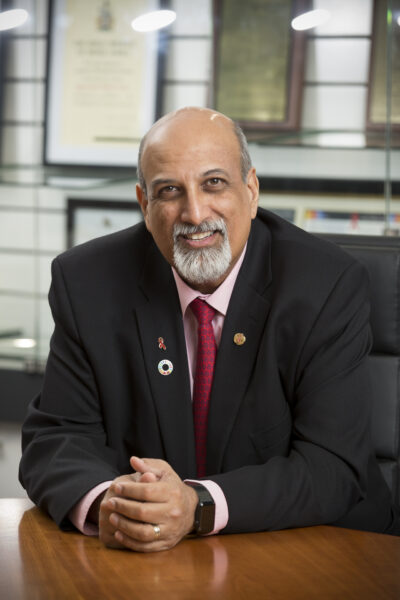
Professor Salim Abdool Karim
Director, Centre for the AIDS Programme of Research in South Africa (CAPRISA)
CAPRISA Professor of Global Health, Columbia University
Pro Vice-Chancellor (Research), University of KwaZulu-Natal
Professor Salim S. Abdool Karim is a world-renowned clinical infectious diseases epidemiologist, whose leadership has shaped global responses to HIV/AIDS and COVID-19. He is Director of CAPRISA and CAPRISA Professor of Global Health at Columbia University’s Mailman School of Public Health, and also serves as Pro Vice-Chancellor (Research) at the University of KwaZulu-Natal.
Professor Abdool Karim is an adjunct Professor of Immunology and Infectious Diseases at Harvard University and adjunct Professor of Medicine at Cornell University. He serves on editorial boards including The New England Journal of Medicine and Lancet Global Health. He is a member of the US National Academy of Medicine and a Fellow of the Royal Society.
A visionary in HIV prevention, Professor Abdool Karim co-led the CAPRISA 004 tenofovir gel trial, demonstrating for the first time that antiretrovirals can prevent sexually acquired HIV and genital herpes in women—a landmark breakthrough that laid the foundation for modern PrEP strategies. His work has influenced global treatment and prevention guidelines, particularly in HIV/TB co-infection management.
Professor Abdool Karim’s career exemplifies the BIO26 theme of “Synergies, Symbioses, Sustainability”—through scientific discovery, community impact, and global leadership. His fusion of research, policy, and advocacy has directly advanced public health in Africa and worldwide, and his plenary presentation will provide powerful insights into sustainable health systems and bio-based resilience in the bioscience era.
Plenary Lecture Title: A Research Response to a Pandemic
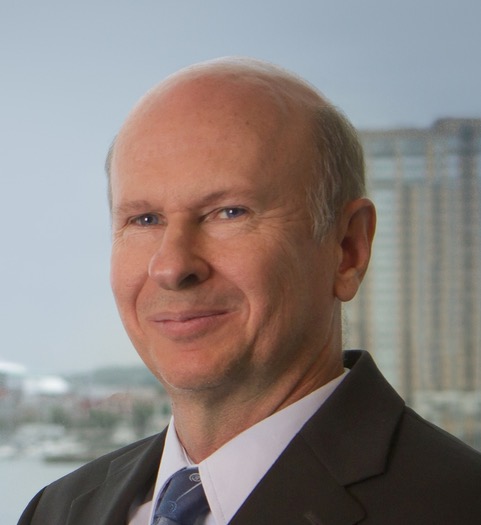
Professor Russell T. Hill
Professor & Director, Institute of Marine and Environmental Technology (IMET)
University of Maryland Center for Environmental Science
Professor Russell T. Hill is a distinguished marine microbiologist and senior leader at the University of Maryland Center for Environmental Science (UMCES), where he served as Executive Director of the Institute of Marine and Environmental Technology (IMET) from 2012 to 2025. He has spearheaded interdisciplinary initiatives that advance translational research in marine microbiology, molecular biology, and biotechnology.
Professor Hill’s research focuses on the symbiotic relationships between bacteria and marine invertebrates, particularly sponges, and on the role of marine microbes in nutrient cycling, drug discovery, and biofuel development. His laboratory was among the first to characterize sponge-associated microbial communities using molecular tools, and has made significant contributions to understanding microbial-driven phosphorus and nitrogen cycles in aquatic ecosystems. Under his leadership, IMET has become a hub for cutting-edge science, fostering collaborations in the University System of Maryland, and contributing to sustainable solutions in aquaculture, biotechnology, and public health.
A native of South Africa, Professor Hill’s work epitomizes the Congress theme “Synergies, Symbioses, Sustainability”. By bridging microbial ecology, environmental science, and technology to address global challenges, his career highlights the potential of marine symbioses to drive innovation and sustainability. His South African roots, matched with his leadership in U.S. marine research, uniquely position him to inspire robust cross-continental dialogue at BIO26.
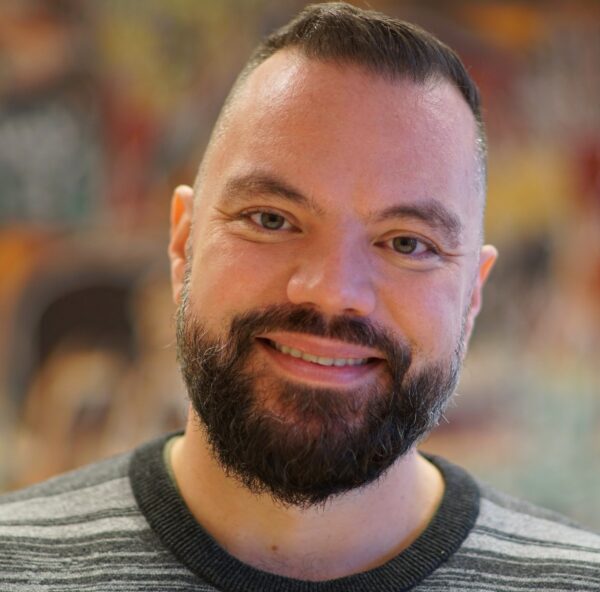
Dr Vasilis Kokkoris
Assistant Professor of Systems Ecology
Vrije Universiteit Amsterdam
Dr Vasilis Kokkoris is an emerging leader in the study of arbuscular mycorrhizal fungi (AMF)—the symbiotic organisms that form extensive underground networks with plant roots. As an Assistant Professor in Systems Ecology at Vrije Universiteit Amsterdam, he employs cutting-edge molecular methods, advanced microscopy, and imaging analysis to uncover the dynamics of thousands of nuclei within individual fungal cells and to map their networked interactions across soil ecosystems.
His research spans multiple ecological scales:
- Nuclear scale – characterizing the arrangement, interaction, and coordination of nuclei within multinucleate AMF cells.
- Network scale – investigating how intrastrain interactions shape mycelial connectivity and symbiotic functioning with host plants.
- Agricultural and ecosystem scale – evaluating how AMF nuclear dynamics influence plant responses, community composition, and ecosystem function across environmental gradients.
Dr Kokkoris’s mesmerizing microscopy work has received global acclaim, earning top prizes such as the Nikon Small World 2020 and Olympus Image of the Year 2021 awards. In 2022, he was awarded a prestigious European Research Council (ERC) Starting Grant to explore the evolutionary and functional implications of AMF’s unique multinucleate organization.
Dr Kokkoris’s work—at the intersection of symbiosis, ecology, and innovation—exemplifies the BIO26 theme of “Synergies, Symbioses, Sustainability” By exploring how unseen fungal networks underpin ecosystem resilience and agricultural productivity, his interdisciplinary research highlights transformative pathways toward sustainability informed by symbiotic systems. His findings illuminate how multi-scale interactions in the soil can inform bio-based solutions amid a changing climate.
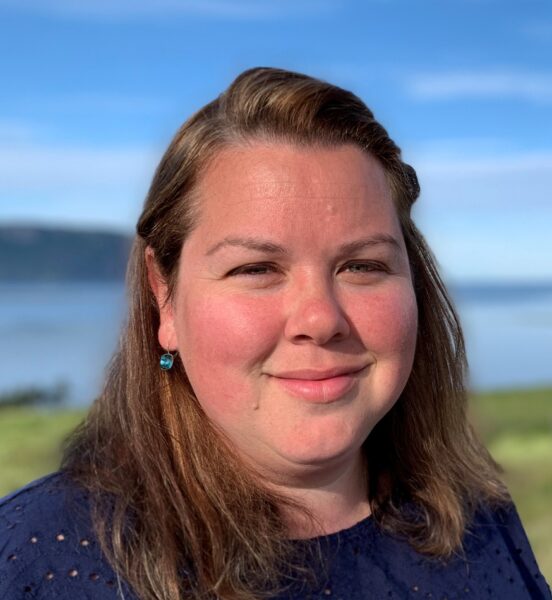
Dr Rachel E. Sipler
Senior Research Scientist & Director, Center for Water Health and Humans
Bigelow Laboratory for Ocean Sciences
Dr Rachel E Sipler is a leading marine biogeochemist whose work bridges microbial physiology, phytoplankton ecology, and elemental fluxes. As a Senior Research Scientist and Director of the Center for Water Health and Humans at the Bigelow Laboratory for Ocean Sciences, she leads interdisciplinary initiatives that examine how environmental change influences aquatic ecosystems.
Her research investigates how variations in temperature, salinity, nutrient availability, and pollution alter water quality, elemental cycling, and planktonic metabolic rates. Through a combination of laboratory and field studies—from urban rivers and wastewater outflows to pristine polar waters—her work addresses topics including carbon sequestration, nutrient recovery, coastal eutrophication, harmful algal blooms, and other environmental change and environmental health areas. Dr Sipler’s science is highly collaborative, engaging academic institutions, government bodies, non-profits, industry partners, and indigenous communities to drive both innovation and real-world impact.
Her work is especially relevant to the Congress theme, “Synergies, Symbioses, Sustainability”. By integrating biogeochemical processes, microbial behavior, and ecosystem health, Dr Sipler embodies the interdisciplinary dialogue BIO26 seeks to foster. Her experience in South Africa and across the globe positions her as a vital contributor to advancing a sustainable bioeconomy through science-driven collaboration.
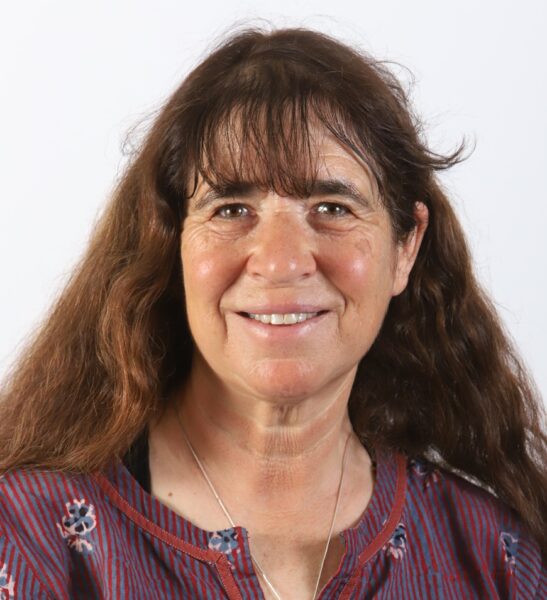
Professor Rachel Wynberg
Professor of Environmental and Development Studies
University of Cape Town
Professor Rachel Wynberg is a distinguished scholar at the University of Cape Town, renowned for her work at the intersection of environmental justice, biodiversity policy, and the bioeconomy. She has built a reputation for research that bridges science, policy, and community rights, particularly in the context of bioprospecting, genetic resources, and intellectual property in Africa. Professor Wynberg has served on numerous advisory committees related to these issues, and has contributed extensively to international and national policy developments related to the Convention on Biological Diversity, the Nagoya Protocol, benefit-sharing, and access to genetic resources.
Prof Wynberg’s research focuses on reconciling conservation, indigenous knowledge, and equitable benefit-sharing within global governance frameworks. She is a leading authority on the dynamics of community consent, bioprospecting, agroecology, and the socio-political dimensions of biotechnology, especially in Southern Africa. Her case studies span medicinal plants, agricultural genetic resources, and community-based conservation, making her scholarship both regionally grounded and globally relevant.
Employing interdisciplinary methodologies that combine legal analysis, qualitative social science, and environmental policy, Professor Wynberg interrogates the tensions between biodiversity conservation, scientific innovation, and equitable access. Her work informs sustainable development practices in biodiversity-rich countries and positions her as an influential voice in global debates on the bioeconomy, indigenous rights, and sustainability.
Her career embodies the BIO26 theme of “Synergies, Symbioses, Sustainability”. By fostering synergy across ecology, policy, and community, exploring symbioses between local knowledge and scientific innovation, and advancing sustainability through equitable and ethical frameworks, she brings a critical perspective that will enrich Congress discussions on the future of biosciences and society.
Keynote Speakers
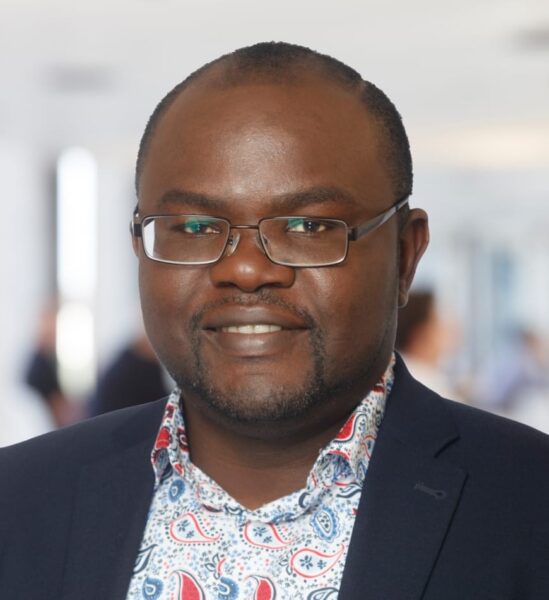
Professor Fidele Ntie-Kang
Associate Professor of Pharmaceutical Chemistry & Head of the Centre for Drug Discovery (UB-CeDD)
University of Buea, Cameroon
Professor Fidele Ntie-Kang is an esteemed medicinal chemist and computational drug discovery expert, and leads the Centre for Drug Discovery (UB-CeDD) at the University of Buea. Established with a landmark Calestous Juma Science Leadership Fellowship from the Bill & Melinda Gates Foundation, UB-CeDD is the first of its kind in Central Africa and serves as a hub for natural product–based drug research.
A pioneer in chemoinformatics for natural product research, Professor Ntie-Kang developed the African Natural Products Database (ANPDB) with more than 11,000 compounds from all regions of the continent. This is a critical tool for virtual screening and drug discovery using Africa’s rich medicinal flora. His research spans molecular modeling, QSAR, ADMET predictions, and virtual screening, and he has authored more than 130 peer-reviewed articles and book chapters.
Professor Ntie-Kang’s work exemplifies the BIO26 theme of “Synergies, Symbioses, Sustainability” By connecting computational chemistry, indigenous knowledge, and drug discovery, he advances a transformative approach to sustainable health innovation. Leading the only drug discovery center in Central Africa, he embodies the synergy of regional leadership, scientific collaboration, and practical application—perfectly aligning with BIO26’s vision for a bio-based, sustainable future.
Keynote Lecture Title: Fostering Drug Discovery in Africa inspired by Natural Products

Professor Thulani Makhalanyane
Full Professor, Department of Microbiology and The School for Data Science and Computational Thinking
Stellenbosch University
Professor Thulani Makhalanyane is a Full Professor in the Department of Microbiology and The School for Data Science and Computational Thinking at Stellenbosch University. His research explores the ecology and evolution of microbial communities across diverse and often extreme ecosystems, including the Antarctic Dry Valleys, the Namib Desert, and the Southern Ocean. Through the integration of field ecology, metagenomics, environmental microbiology, and computational approaches, his work provides critical insights into how microorganisms adapt to and mediate biogeochemical processes under conditions of environmental stress.
Previously, Professor Makhalanyane held the DSI/NRF SARChI Chair in Marine Microbiomics at the University of Pretoria, where he established a nationally recognized research programme examining microbial interactions and functions in marine and polar environments. His pioneering studies have advanced understanding of the roles of microbes in carbon and sulfur cycling and their potential contributions to ecosystem resilience under changing climatic conditions.
Beyond his research, Professor Makhalanyane plays an influential role in global science leadership. He serves as Editor-in-Chief (Reviews and Perspectives) of The ISME Journal and as Senior Editor for both mSystems and Ecology Letters. He is also an elected member of the International Society for Microbial Ecology (ISME) Board and is the Immediate previous Director of the ISME Ambassador Programme, leading initiatives to build capacity and visibility for microbial ecology across Africa and beyond. He is currently a member of the ISME Climate Change committee and also an advisory member of the Applied Microbiology International’s Group for Healthy Land.
His scholarship exemplifies the theme “Synergies, Symbioses, Sustainability”, fostering connections across ecosystems, disciplines, and scales to advance understanding of life in extreme and changing environments. Through this work, Professor Makhalanyane continues to position South African microbial ecology at the forefront of international research and innovation.
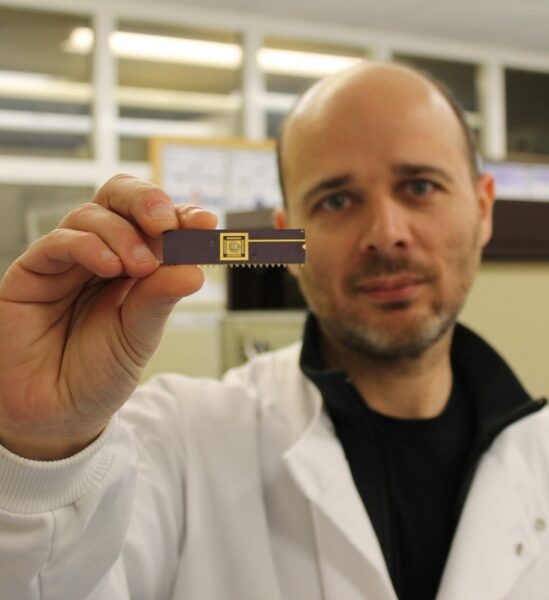
Professor Pedro Estrela
Director of Centre for Bioengineering & Biomedical Technologies (CBio)
Professor of Biosensors and Bioelectronics, Department of Electronic & Electrical Engineering
University of Bath, United Kingdom
Professor Pedro Estrela bridges engineering, biosciences, and public health in his roles as Professor of Biosensors and Bioelectronics at the Department of Electronic & Electrical Engineering and Director of the Centre for Bioengineering & Biomedical Technologies (CBio) at the University of Bath and as Co-Director of the Research England funded Centre of Excellence in Water-Based Early-Warning Systems for Health Protection (CWBE). He is also the Co-Director of the NERC Centre for Doctoral Training in Real-Time Digital Water-Based Systems for Environmental Health Protection (Red-ALERT CDT), and a member of the Steering Committee of the Consortium for Precision Health.
Prof Estrela’s research focuses on the development of label-free electrical, electrochemical and plasmonic biosensors and lab-on-chip devices for a wide range of applications such as medical diagnosis, prognosis and monitoring as well as water/wastewater monitoring. He is an Associate Editor for the journals Biosensors & Bioelectronics, Sensors, Frontiers in Sensors and Advanced Devices & Instrumentation and Specialty Chief Editor in Frontiers in Lab on a Chip Technologies.
His career exemplifies the Congress theme of “Synergies, Symbioses, Sustainability” by integrating cutting-edge technology with bioscience to foster innovation at the interface of human and environmental health. His expertise in developing label-free electrical, electrochemical, and plasmonic biosensors for applications ranging from medical diagnostics to water and wastewater monitoring positions him at the forefront of innovation in health and environmental biotechnology.
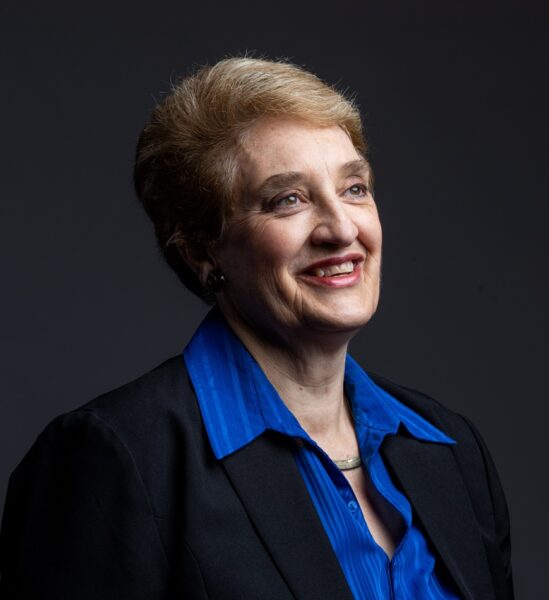
Dr Lucia Steenkamp
Principal Scientist and R&D Lead, Biomanufacturing Industry Development Centre (BIDC)
Council for Scientific and Industrial Research (CSIR)
Dr Lucia Steenkamp is a Chief Researcher and strategic leader at the Council for Scientific and Industrial Research (CSIR), where she has played a pivotal role in shaping South Africa’s biomanufacturing and natural product innovation landscape. With more than three decades of experience in biotechnology research, specifically biocatalysis, and commercialisation, Dr Steenkamp is recognised nationally and internationally for her work on industrial enzyme technologies, microbial bioprocess optimisation, green chemistry platforms, and plant-based bioactives.
She has led multidisciplinary programmes focused on enzyme development and biocatalytic production of compounds in different fields that are classified as natural, natural product extraction and characterization, and the translation of laboratory discoveries into pilot-scale manufacturing solutions. Her work has directly supported the growth of South Africa’s bio-industrial and pharmaceutical sectors, enabling new product pipelines in areas such as nutraceuticals, agro-processing, biocatalysis, and industrial biotechnology. Dr Steenkamp has also played a key role in the establishment and operation of the Industrial Biocatalysis Hub of South Africa (IBH), helping SMMEs and innovators commercialise biotechnology and biocatalysis-based products through technical support and market-readiness programmes.
In addition to her scientific contributions, she is a passionate advocate for skills development and innovation entrepreneurship, mentoring emerging biotechnologists and building partnerships across academia, government, and industry to strengthen South Africa’s biotechnology and bioeconomy ecosystem. She has co-authored numerous publications, patents, and technology platforms that support bio-based economic development and industrial sustainability.
Keynote Lecture Title: From Laboratory to Commercial Scale Using Biocatalysis for Sustainable Product Development

